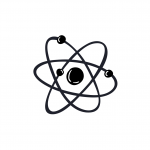









































Candidates must have passed 10+2 or an equivalent examination from a recognized board with PCM (Physics, Chemistry and Mathematics) as major subjects. Taking subjects like IP and Computer Science are an added advantage. A minimum of 55% marks in 10+2 or equivalent is compulsory for pursuing B.Tech/B.E. in software engineering or diploma courses in the same.
Postgraduate course offers specialization in computer programming languages and computer system technologies. Enrolled students investigate complex problems through research and use appropriate modern engineering tools to find solutions. To be eligible to pursue this course in India, a student must have completed a bachelor’s degree in computer science or any related subject from a well-recognized university.
1. Leading IITs (IIT Delhi, IIT Madras, IIT Kanpur, IIT Bombay, IIT Kharagpur) 2. National Institute of Technology (NIT), Trichy 3. Vellore Institute of Technology (VIT), Vellore 4. Birla Institute of Technology (BITS), Pilani 5. Manipal Institute of Technology (MIT), Manipal
BCA is a three year undergraduate degree programme for candidates wishing to delve into the world of Computer languages. One of the most popular options to get started with a career in Information Technology, the course gives you an insight into the world of computers and its applications. A BCA degree is considered to be at par with a BTech/BE degree in Computer Science or Information Technology. The degree helps interested students in setting up a sound academic base for an advanced career in Computer Applications. To pursue a BCA programme, one need not compulsorily have Physics, Chemistry and Maths as subjects in Class 12th. Candidates who have pursued Arts or Commerce in class XII can also join the course. The MCA course comprises of core subject contents like Mathematics behind Computer Science, concepts in core computers and systems science, non-core computer courses and software development or design. MCA is a specialized degree after BCA and really widen an individual's job prospects thereafter.
A software engineer uses computer science principles to develop software solutions that will satisfy the wants and needs of businesses and consumers. Software engineers create many types of solutions such as desktop and web applications, mobile apps, games, robots, operating systems, network systems, etc. They do so using programming languages, frameworks, databases, servers and other technologies to turn an idea into a final product. Because software engineers work on many types of projects, they also take on varying job roles, responsibilities, and even personas!